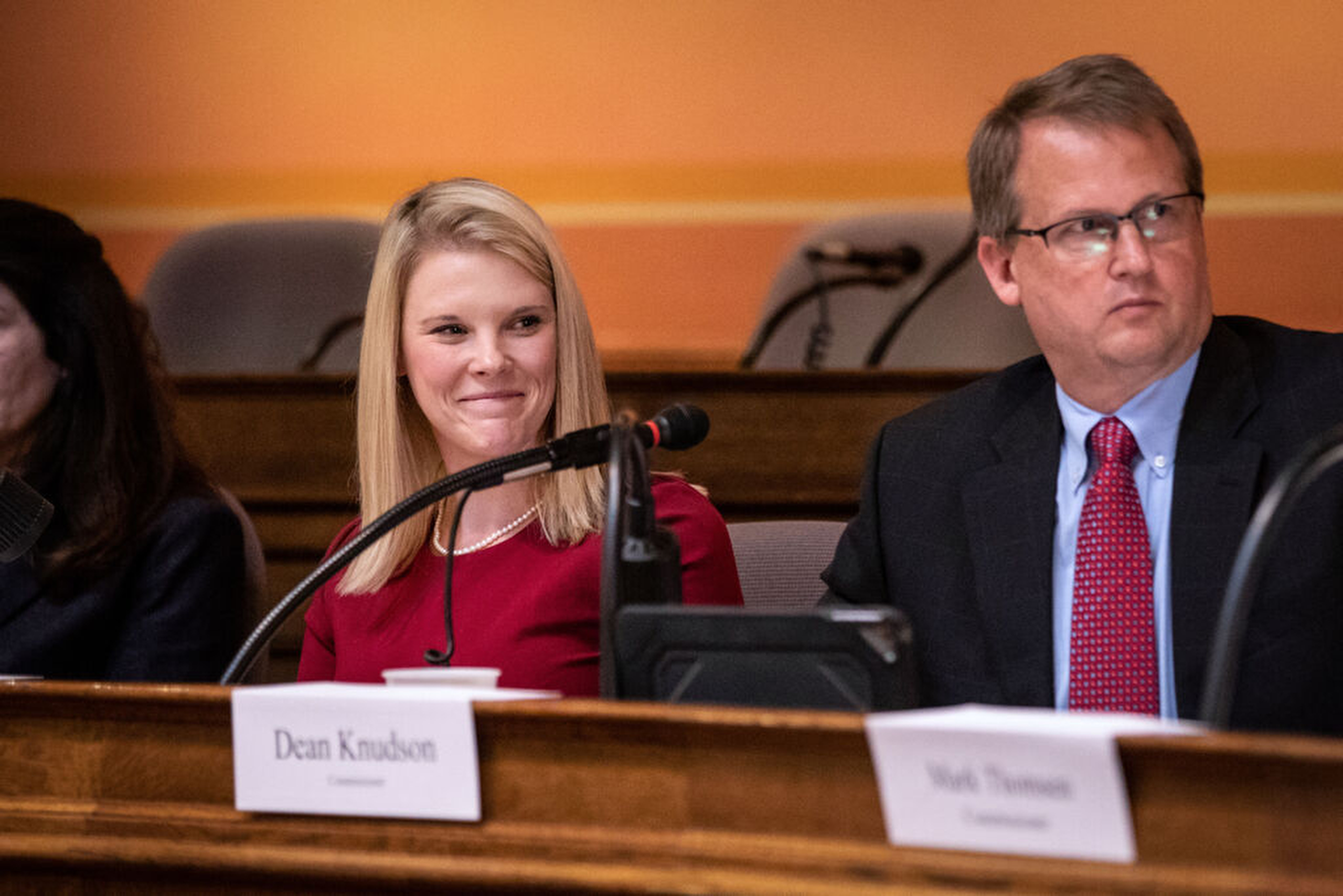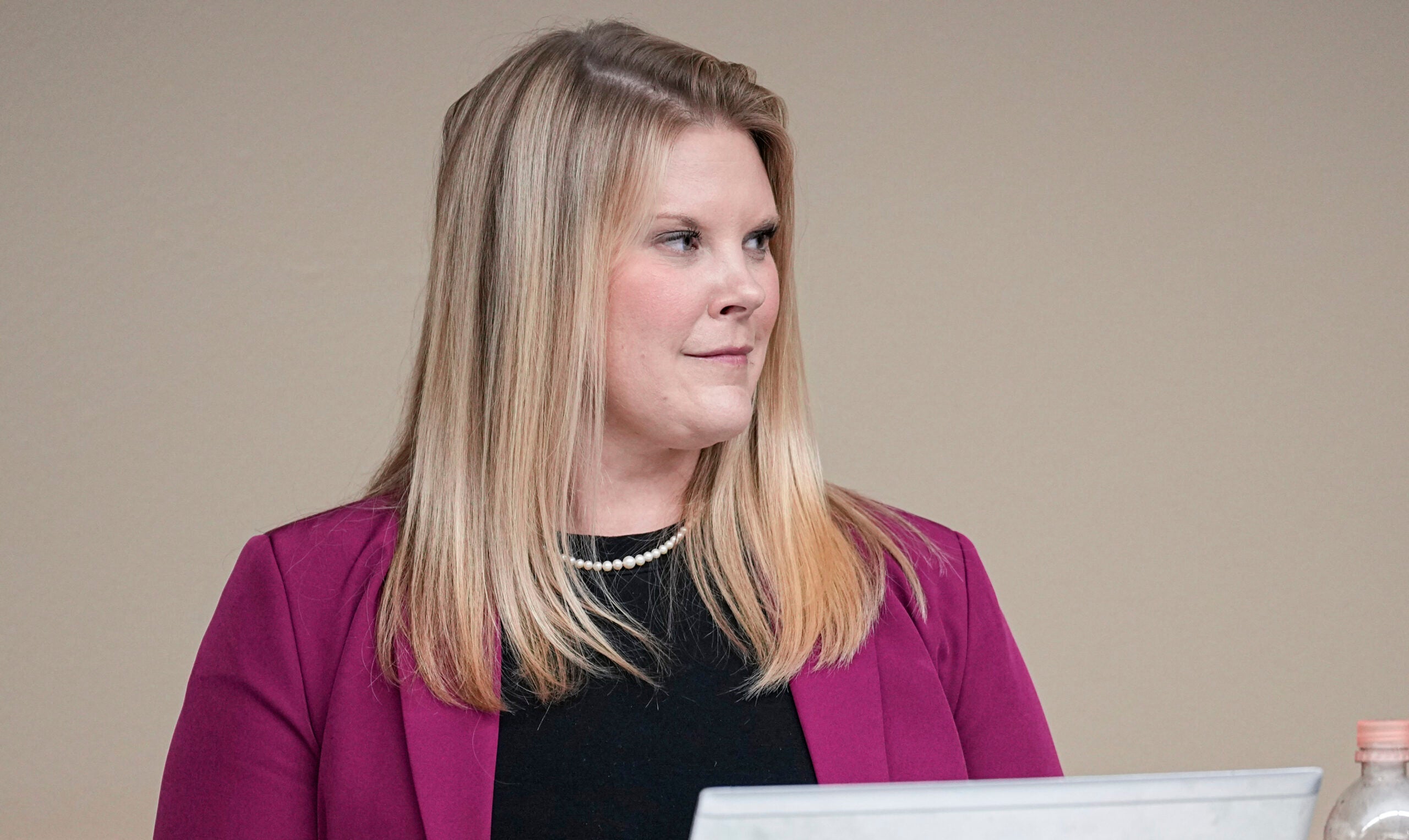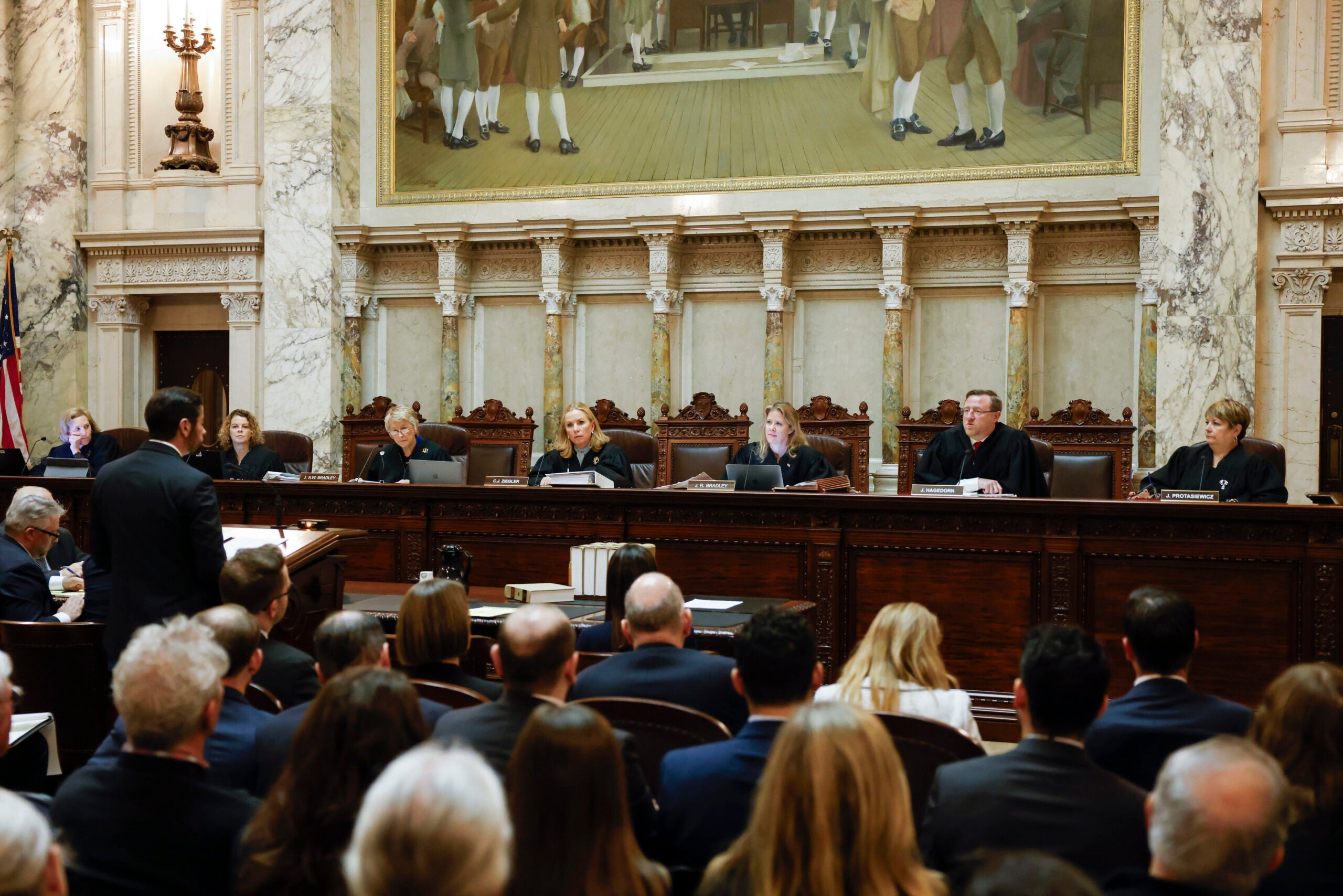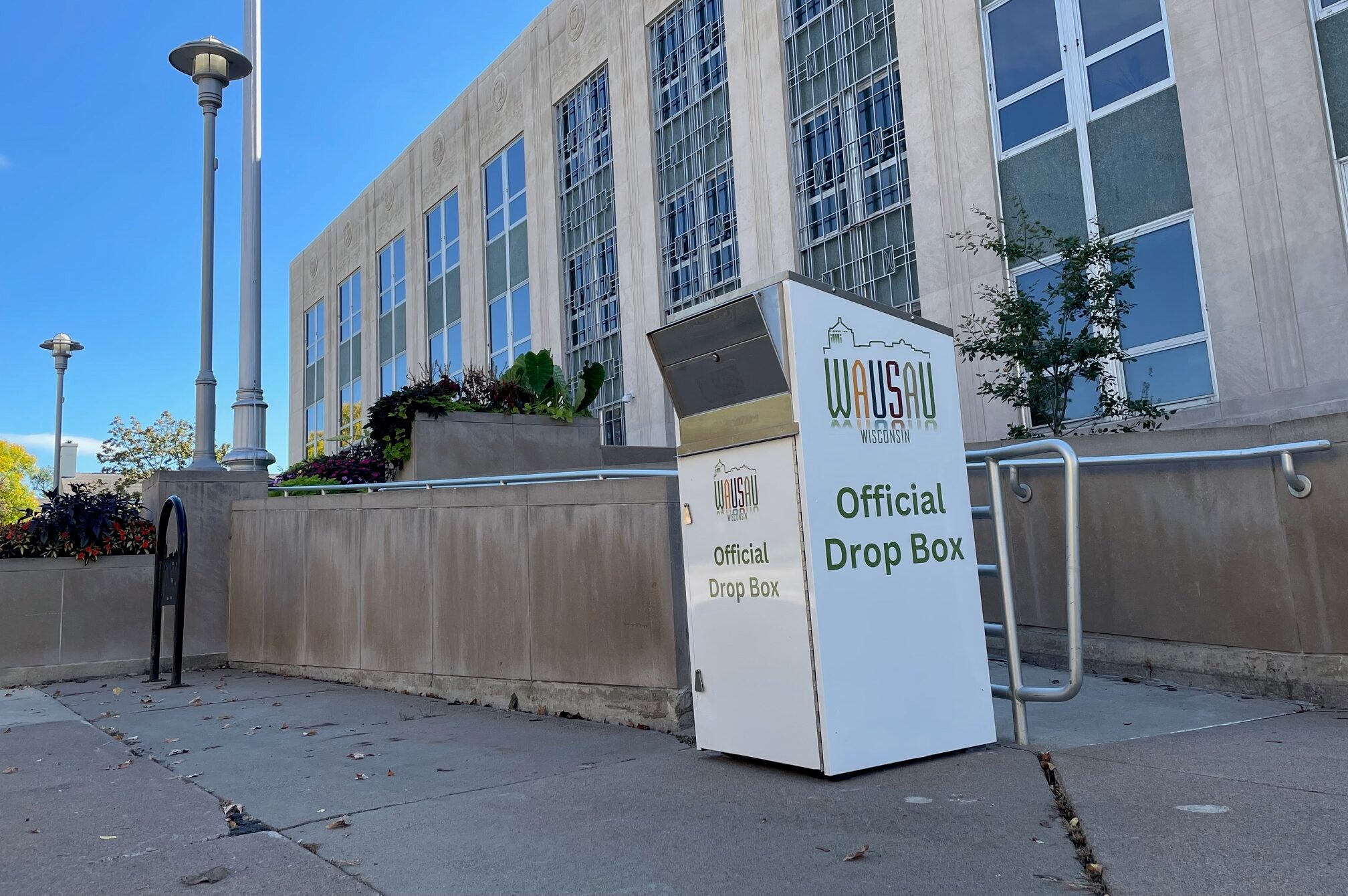Meagan Wolfe, the state’s top elections official, is receiving heightened security, WPR has confirmed.
The Wisconsin Elections Commission, the agency at which Wolfe serves as the nonpartisan administrator, would not confirm how long Wolfe has received the extra security. Gov. Tony Evers’ office, which approved the additional security, declined to specify what that security looks like.
“The Wisconsin Elections Commission has had productive conversations about safety and security with state leadership, including the Governor’s Office, which is tasked with approving security measures for state government officials,” WEC spokesperson Riley Vetterkind said in a statement. “Those conversations have resulted in additional security measures being approved for Administrator Wolfe and the WEC when the need arises.”
Stay informed on the latest news
Sign up for WPR’s email newsletter.
Elections administrators say the extra security, which was first reported by the Milwaukee Journal-Sentinel, is unusual, and comes after nearly four years of targeted attacks on election officials across the country, with particular attention focused on swing states whose results tipped the margin of that presidential contest toward President Joe Biden over former President Donald Trump.
Trump and his supporters have repeatedly, and without evidence, pointed to those states as hotbeds of voter fraud. As recently as last week, Trump maintained he won Wisconsin, which he lost by about 20,000 votes in 2020.
Nationwide, election workers have faced threats, intimidation and harassment that has led to high turnover of election officials and a few dozen federal charges. Wisconsin state lawmakers recently passed a bill that increases penalties for attacks on election workers.
Wolfe is among several swing state officials that have received particular nationwide attention, including comments from Trump on a radio program last week suggesting Wolfe would “try to steal” the 2024 election.
“I’ve heard so much about Meagan Wolfe, and it’s like unanimous, she shouldn’t be there,” Trump said last week on the Regular Joe Show, a conservative talk program.
It’s a level of attention unusual for public servants in that role, said Kevin Kennedy, who oversaw Wisconsin’s elections from 1983 to 2016.
“To some extent, criticism was something that comes with the job,” he said. “But what we’re seeing now is so much different.”
In a written statement, Evers said rhetoric from Trump and others has contributed to a threatening environment for Wolfe and other election officials.
“Republicans’ rhetoric and actions have consequences—they have not only undermined basic tenets of our democracy and the integrity of our elections, but by participating in targeting, harassing, and threatening dedicated election officials for simply doing their jobs, including Administrator Wolfe, Republicans have enabled and emboldened others to do the same,” Evers said.
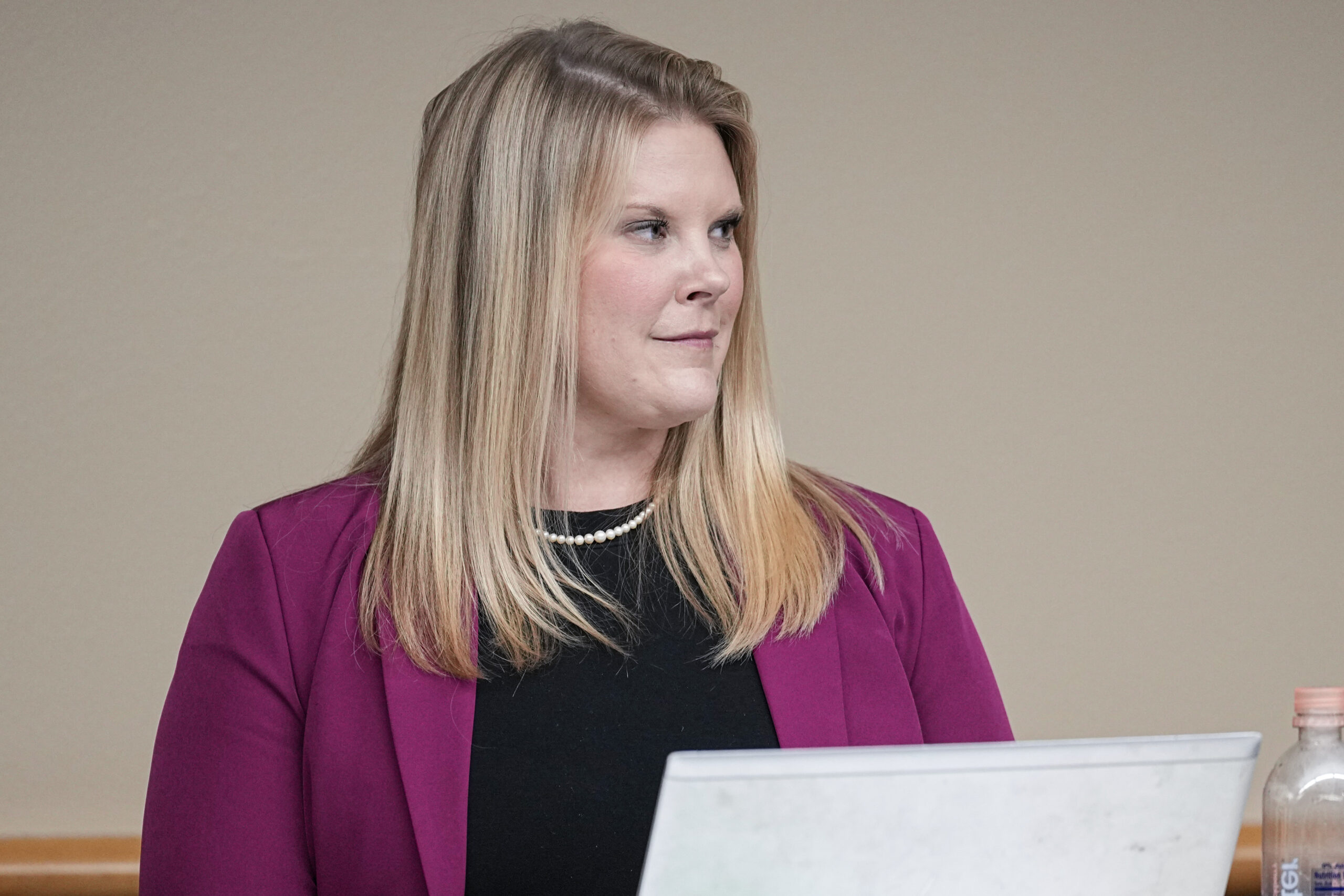
Election workers face threats and harassment after 2020 election
The 2020 election in Wisconsin, as elsewhere, was subject to several court challenges, as well as multiple partisan and nonpartisan investigations. No evidence of widespread voter fraud or significant wrongdoing was ever uncovered.
Nevertheless, claims of a stolen election have dogged Wolfe and other election officials ever since. In 2021, the federal Department of Justice established a task force to address cases of intimidation and threats.
In many cases, harassment and threatening language is protected by the First Amendment, and relatively few election-related cases have been prosecuted.
According to a 2023 report by the Brennan Center for Justice, a left-leaning think tank, about a fifth of election workers know someone who has left their job because of safety concerns, and three-quarters have reported an increase in harassment.
Michael Haas, who oversaw the Wisconsin Elections Commission from 2016 to 2018 and now serves as the Madison city attorney, said a tonal shift has followed the 2020 election and Trump’s steady drumbeat of crying foul.
“It’s not (unheard of) for losing candidates to try to search for a reason that they lost other than themselves,” he said. “The difference here is there has never been a losing candidate who has continued to lie about the election process and election officials even after every challenge and recount and lawsuit and audit has proven that the election is legal and accurate.”
In Wisconsin, Wolfe has become a figurehead for those claims. Her critics spent months last year trying to oust her from office after her term expired last summer but she remained in a holdover position.
In September, Republicans in the Senate voted unanimously to oust Wolfe. Attorney General Josh Kaul filed suit after that vote, saying the Senate’s action was illegal and that state court precedent says officials can stay in office after the expiration of their terms.
In January, Dane County Circuit Judge Ann Peacock ruled in favor of that argument, finding that Wolfe is lawfully in her seat. That same month, some Republicans attempted to impeach her in the Assembly, an effort that was not successful. Assembly Speaker Robin Vos has since said that he does not support Wolfe remaining in office, but will not support efforts to remove her.
Vos, too, received criticism from Trump last week for not doing more to expel Wolfe.
“Robin Vos, who’s a Republican, is allowing her to be there,” Trump said in the same Regular Joe interview.
A spokesperson for Vos said he has received “numerous” threats in recent years, with no recent increase, and that he will not be seeking or receiving “extra taxpayer-funded security.”
Evers called Trump’s recent comments about Wolfe “vile and disturbing.”
In a statement, Wolfe said she is remaining focused on administering the ongoing 2024 election cycle.
“There are many times I wish I could respond more directly to defend myself, my staff, Wisconsin’s local election officials, and the upstanding way in which we administer elections in this state,” she said. ” However, my role is nonpartisan, and my focus is on impartially administering the upcoming elections.”
Wisconsin Public Radio, © Copyright 2025, Board of Regents of the University of Wisconsin System and Wisconsin Educational Communications Board.
